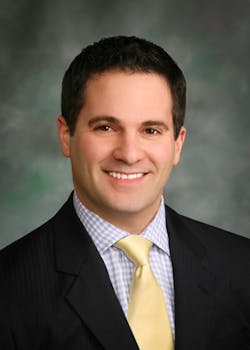Air Carrier Contract Maintenance Requirements: It’s Been a Long Flight
The government can have a tough time getting things done. Washington stagnation is an old and familiar storyline. However, sometimes there’s something worse than inaction: when policymakers are compelled to do something best left alone. These are the moments when proactive industry engagement can mitigate regulatory disaster.
On March 4, the Federal Aviation Administration (FAA) issued a final rule regarding air carrier contract maintenance requirements. The new mandates weren’t surprising; in fact, the process began nearly two decades ago with the loss of ValuJet Flight 592 and the FAA’s subsequent introduction of Air carrier Operations Specifications (OpSpecs) paragraph D91 in Flight Standards Handbook Bulletin for Airworthiness (HBAW) 96-05C and other agency actions regarding contract maintenance programs.
Congress was compelled to visit the topic in response to several Department of Transportation Office of Inspector General reports (2003, 2005, 2008) criticizing the FAA’s oversight of air carriers’ contract maintenance programs. As a result, the FAA Modernization & Reform Act of 2012’s (Public Law 112–95 (February 14, 2012)) forced the agency to revisit its contract maintenance regulations.
The Aeronautical Repair Station Association (ARSA) was there every step of the way, engaging both on the regulatory and legislative fronts to ensure minimal impact on maintenance providers and air carriers. With limited resources, but a plethora of expertise and hard work, ARSA, in conjunction with its airline partners, waged a two-front education and advocacy effort.
Ensuring the FAA was able to utilize definitions that mesh with operational reality was the first step. The association worked with the FAA on revised OpsSpecs D091 (replaced the term “substantial maintenance” with “essential maintenance”) and on updated guidance material (Notices 8900.102 and 8900.103) (which, defined “essential maintenance” as any on-wing accomplishment of any maintenance or alteration that the air carrier designates as required inspection items [RII]). At the same time, ARSA strongly and continuously recommended specific legislative language to Congress. The goal was to limit unintended consequences, ensure consistency with regulatory definitions and put the agency in the best position to produce an air carrier contract maintenance rule that complied with Congress’ mandate without substantial disruption to air carriers or their maintenance providers.
The association’s efforts bore fruit. On the Hill, legislative proposals mandating rules governing air carrier contract maintenance programs went from absurd when introduced in 2009 to workable when finally passed in 2012 (see comparison). In the regulations, the FAA used ARSA’s thorough comments, to evolve its 2013 notice of proposed rulemaking into the recently-issued final rule (see comparison).
Is the final result perfect? Absolutely not! But Washington had convinced itself that something had to be done and the industry’s multi-faceted strategy ensured that “something” translated into minimal burden for the aviation community.
To reach desired outcomes, particularly in the policymaking process, requires consistent and calculated engagement in multiple venues. The recently completed rulemaking governing air carrier contract maintenance programs demonstrates how actively working with both regulators and lawmakers throughout the process reaps rewards, often over many years. To learn more about ARSA’s work on this issue visit its contract maintenance requirement comparison and timeline page at arsa.org/contract-maintenance.
Daniel B. Fisher is senior legislative associate of Obadal, Filler, MacLeod & Klein, PLC providing client advocacy services, public policy counsel and strategic advice on legislative and regulatory matters. As a registered federal lobbyist, he advocates for the Aeronautical Repair Station Association on Capitol Hill.
About the Author

Daniel Fisher
Daniel B. Fisher is ARSA’s vice president of legislative affairs and senior legislative associate at the law firm of Obadal, Filler, MacLeod and Klein. Fisher attended St. Mary’s College of Maryland, where he graduated magna cum laude, and received a law degree from George Mason University School of Law. Prior to joining ARSA, Fisher served four years on the U.S. Senate Judiciary Committee staff of the late Sen. Arlen Specter (Pa.). He can be contacted at [email protected].
